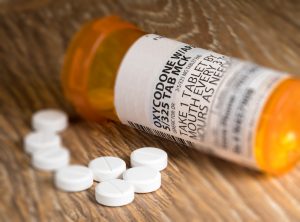
Several Republican members of Congress support specific aspects of the wide-ranging anti-drug policy changes suggested by the President’s Commission on Combating Drug Addiction and the Opioid Crisis, which released its final report Nov. 1 with recommendations to the White House.
Republican U.S. Reps. Evan Jenkins of West Virginia, Patrick Meehan of Pennsylvania and Susan Brooks of Indiana commended commission recommendations, which included 56 strategies covering areas such as federal funding and programs, opioid addiction prevention, opioid prescription practices, reducing and addressing the availability of illicit opioids, responding to overdose and much more.
Jenkins, in particular, said he was deeply appreciative that the opioid commission formally supported the Prescription Drug Monitoring Act of 2017, H.R. 1854, which he introduced April 3. The commission cited the bill’s strict prescription drug monitoring program (PDMP) requirements in recommending Congress pass it and U.S. President Donald Trump sign it.
Specifically, the bill would require a state that receives grant funds under the PDMP or the controlled substance monitoring program to comply with specified requirements, including a requirement to share its PDMP data with other states. The U.S. Department of Justice (DOJ) or Department of Health and Human Services (HHS) would be allowed to withhold grant funds from a state that failed to comply. To facilitate data sharing among states, the bill would direct DOJ to award a grant under the Comprehensive Opioid Abuse Grant Program to establish and maintain a data-sharing hub.
Because opioid abuse often starts with the misuse and abuse of prescription pills, “widely implementing prescription drug monitoring programs … can help prevent overprescribing and doctor shopping—two activities that fuel the drug crisis,” Jenkins said.
Jenkins’ bipartisan H.R. 1854, which has four cosponsors, has been referred to the House Crime, Terrorism, Homeland Security, and Investigations Subcommittee. U.S. Sen. Amy Klobuchar (D-MN) introduced the Senate companion bill, S. 778, which has been referred to the Senate Health, Education, Labor and Pensions Committee.
Also in a statement released Wednesday, Rep. Meehan commended the opioid commission’s call for wider use of naloxone and for the expanded use of federal drug-treatment courts, which he said “help individuals coping with addiction get treatment.”
“I’ve long been a fighter for veterans’ treatment courts, [which are] similar to drug courts, and worked to secure the first-ever federal funding for these courts,” said Meehan.
The combined treatment, preventative care and other services provided through these facilities, Meehan said, will help “keep more individuals off the streets, out of prison and on the path to recovery.”
Regarding naloxone — a medication that blocks the effects of opioids, especially during an overdose — the opioid commission recommended that more medical professionals be allowed to administer higher doses of it, a suggestion that Meehan supports.
First responders in many Pennsylvania communities have adopted the use of naloxone and “last summer, police in Delaware County became the first in the world to carry it regularly,” Meehan said. “Sadly, the need for this treatment is only growing.”
Rep. Brooks also thinks the nation’s addiction crisis will worsen without more action around reversal drugs such as naloxone.
The congresswoman said this week that she was impressed by the opioid commission’s recommendation to ensure that first responders receive proper training to administer the drug, which would give them “the tools needed to save lives.”
Brooks also supports the commission’s recommendations for increased medical education for prescription drug providers. She said it “must be a priority moving forward as their decisions to treat pain with addictive medications can potentially have irreversible and fatal consequences.”
And she said the commission’s recommendations highlight the need for a continued focus on drug abuse prevention and improved addiction treatment services.
“It is now up to Congress to work with federal agencies to implement these recommendations,” Brooks said.
The bipartisan opioid commission on Wednesday sent its recommendations to Congress and to the White House.
Trump, who established the opioid commission in March by executive order, declared the opioid crisis a national public health emergency under federal law on Oct. 26.
The commission now will dissolve in 30 days unless Trump instructs otherwise.



